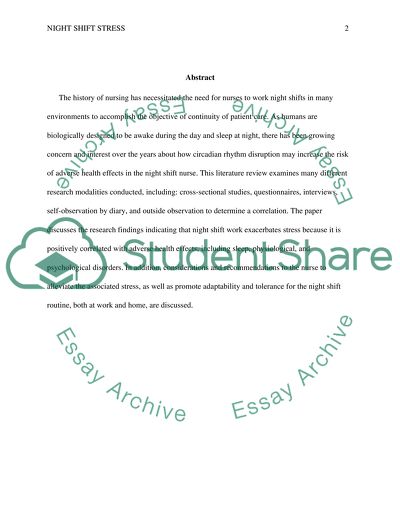Cite this document
(“Night Shift Nurse Stress Research Paper Example | Topics and Well Written Essays - 2500 words”, n.d.)
Retrieved from https://studentshare.org/nursing/1652427-night-shift-nurse-stress
Retrieved from https://studentshare.org/nursing/1652427-night-shift-nurse-stress
(Night Shift Nurse Stress Research Paper Example | Topics and Well Written Essays - 2500 Words)
https://studentshare.org/nursing/1652427-night-shift-nurse-stress.
https://studentshare.org/nursing/1652427-night-shift-nurse-stress.
“Night Shift Nurse Stress Research Paper Example | Topics and Well Written Essays - 2500 Words”, n.d. https://studentshare.org/nursing/1652427-night-shift-nurse-stress.


